


COP15:
Are you
Listening?
Intro
After two years of postponement, COP15 finally took place in Montreal in December 2022. The date of COP15 was originally scheduled for October 2020. Multiple postponements and push backs later and this is the tragic result and reality of what happens when we don’t act.
We partnered with creative agency Amplitude, Grammy-nominated composer Amie Doherty and talented singer songwriter Billy Lockett to put together this short film to convey the stark warning that urgent action must be taken, if we are to save our planet’s biodiversity, and the species within it.
Approximately one million plant and animal species are currently facing extinction. That is why it’s so important for COP15 - the UN Biodiversity Conference - to go ahead this year. It’s crucial that our world leaders are made aware of the biodiversity crisis so that they can put measures in place to protect and support the ecosystems humanity relies on for survival. As biodiversity decreases, climate change increases, as does the risk of novel zoonotic diseases, such as COVID-19. All of this has been driven by human activity, so it’s imperative that humans are the ones to fix this. That’s why the COP15 UN Biodiversity Conference is so important.
December 2022, it is time to make change. Make your voice heard - ask world leaders at COP15 to act now for biodiversity by sharing the animation, adding your name to our letter to world leaders or submitting a video to our website telling them from your own perspective why change needs to happen. Together, let’s ask world leaders #AreYouListening ?
Full width

What you can do
We are sending a letter to the world leaders who will be attending COP15 this December. We want to rally as many people as possible to show their support on this issue by allowing people to add their name to the letter and proving to the world leaders how much the public cares and is invested in the future of biodiversity.
Add your name and make yourself heard.
SIGN OUR LETTER!
Dear World Leaders attending COP15,
The task before you could not be more urgent.
I am writing on behalf of International Animal Rescue, representing its worldwide membership of environmentalists and animal lovers, imploring you to attend COP15 this December and take vital action to protect biodiversity.
Biodiversity underpins the health of the planet. It is essential for the processes that support all life on Earth, including human life. None of the targets set by the Convention on Biological Diversity have been achieved: the world has failed to reach its goals on the conservation of biological diversity.
We urge you to please attend COP15 and take decisive action that will protect and restore the precious global biodiversity that sustains us and our planet.
The clock is ticking. COP15 – Are You Listening?
Yours faithfully,
Alan Knight OBE
President
International Animal Rescue
The full letter can be found here.
What is IAR doing to protect biodiversity?
At International Animal Rescue, our vision is of a world where humans and animals coexist in sustainable ecosystems. We see first-hand the impact of human activity and climate change on precious ecosystems. Habitat loss is one of the most critical factors impacting biodiversity.
One of the biggest threats to the survival of other species on the planet, is the rate at which we’re transforming the natural landscape, through building roads and cities, and converting land to grow food. Our mission is to build awareness and put effective systems in place so that habitats and animals are protected.
International Animal Rescue is developing holistic projects that engage government authorities, local communities and commercial businesses to develop sustainable projects that protect species and habitats, thus preventing biodiversity loss and reducing greenhouse gas emissions.
Although peatlands cover less than 3% of global land surface, estimates suggest that peatlands contain twice as much carbon as the world’s forests, and so peatland conservation is crucial to storing carbon. Maintaining healthy peatlands also helps to lessen the impact of climate change by regulating water flows, reducing flooding, droughts and fires.
IAR is working to conserve deep peat forests, which are the habitat of some of the world’s most important species: this has the double benefit of protecting biodiversity and combating climate change.
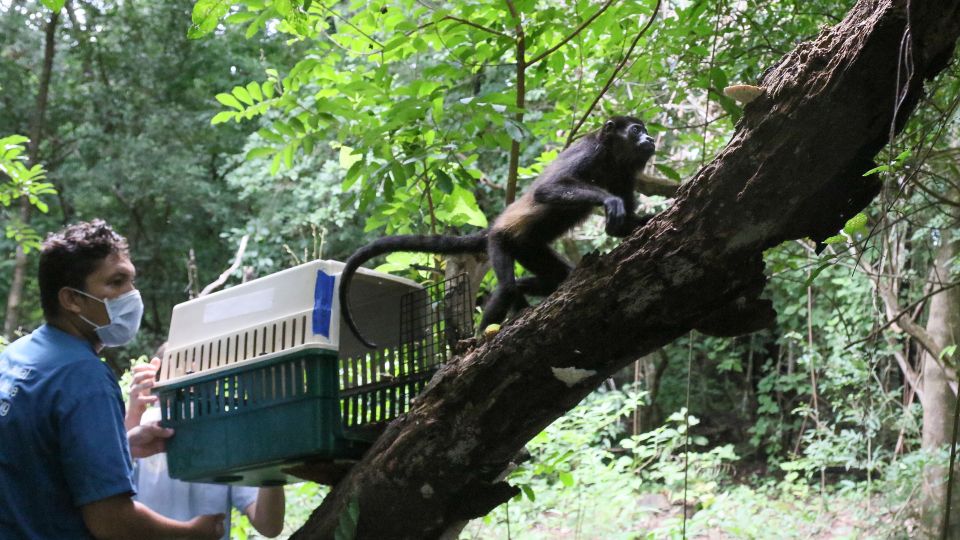
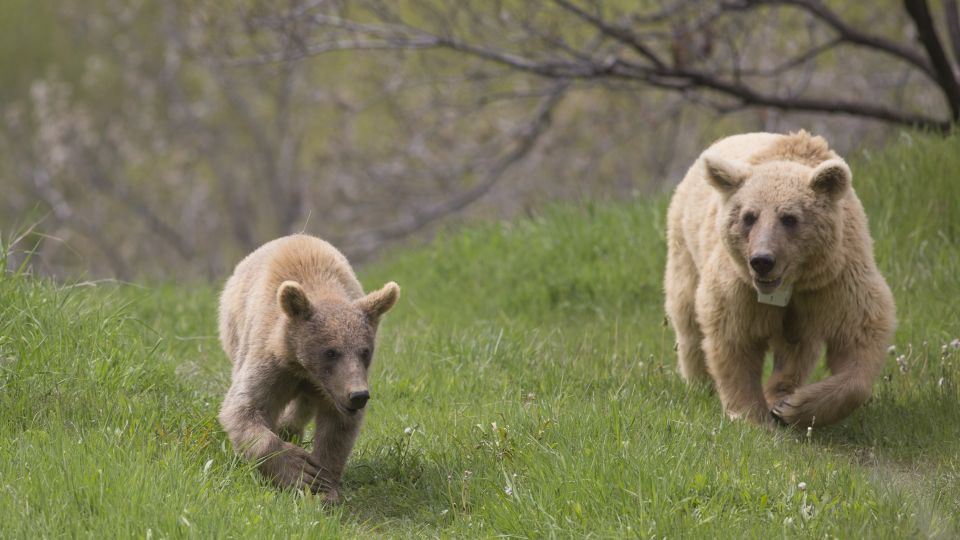
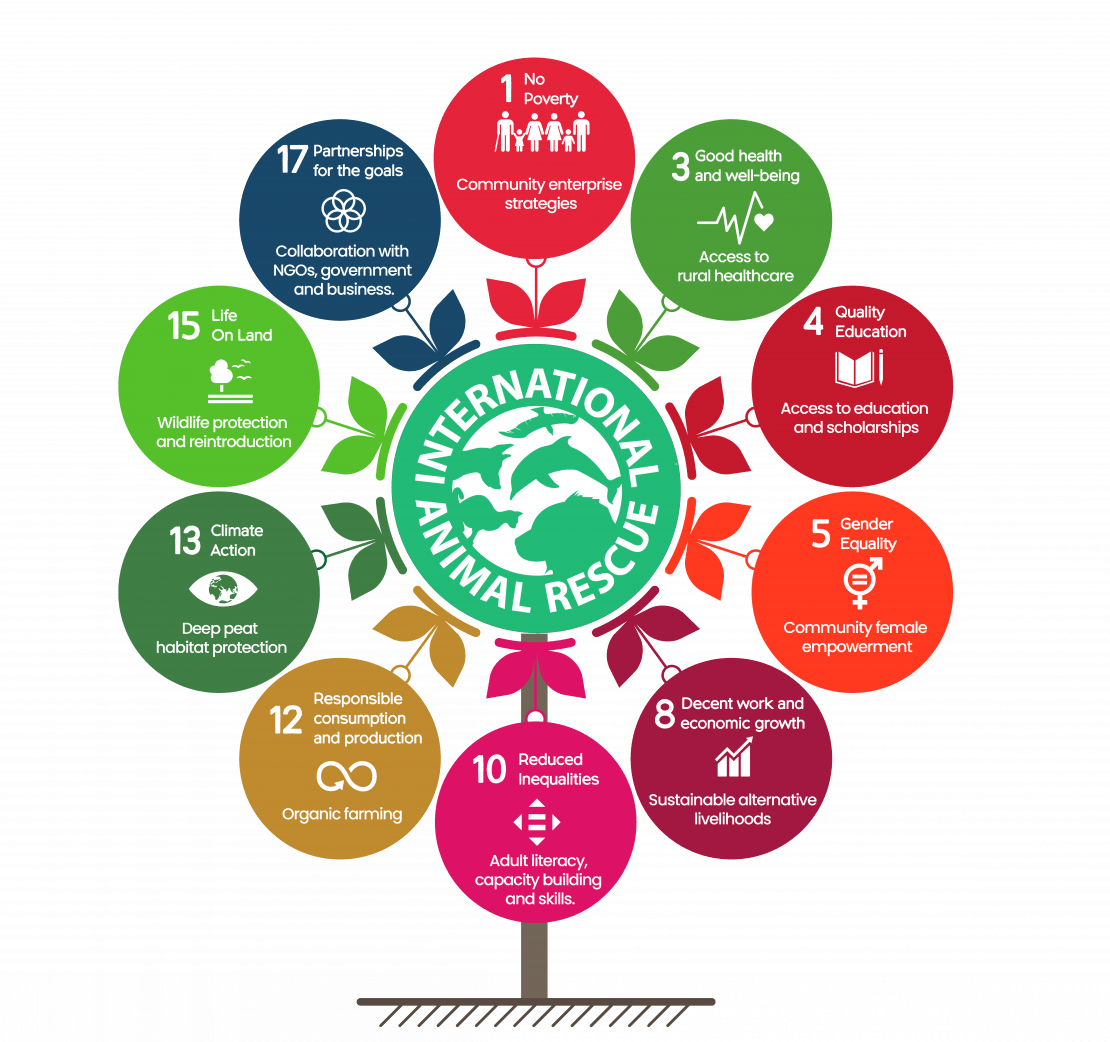
WIDE SCREEN IMAGE - ALAN
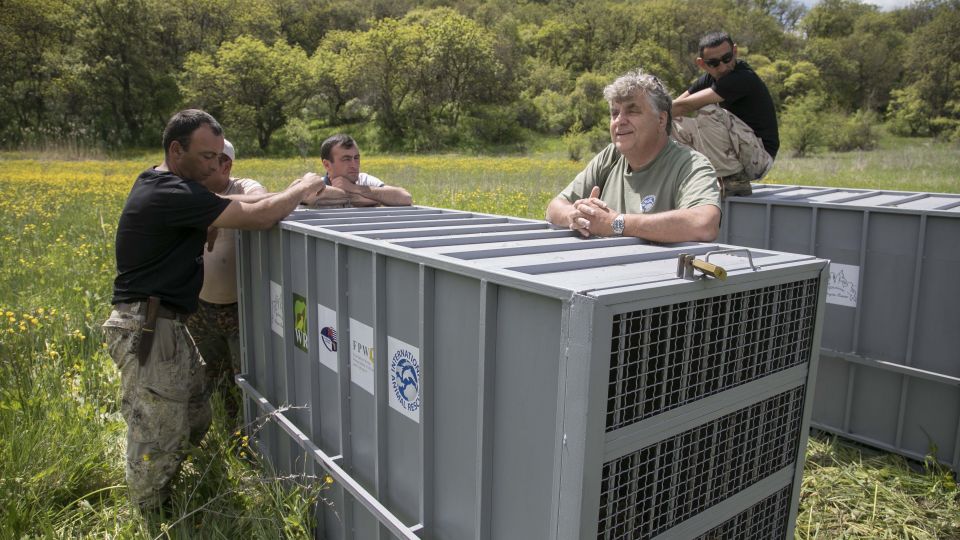
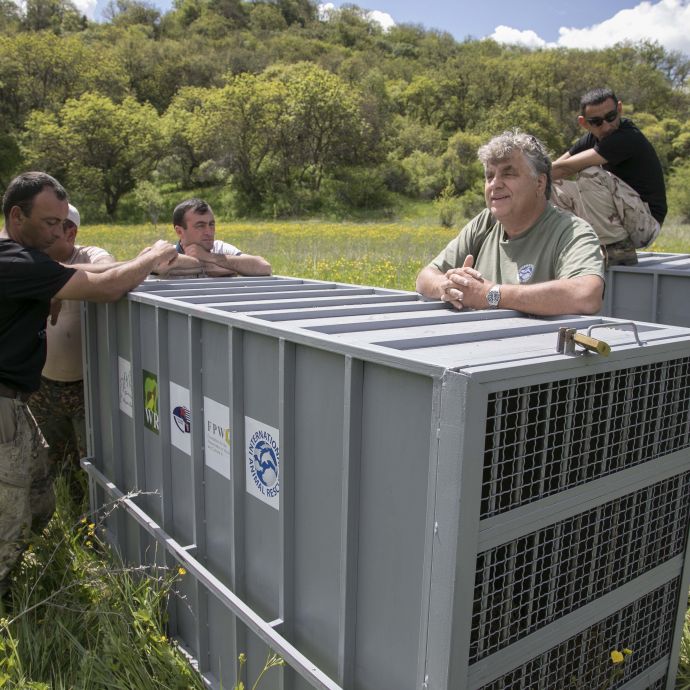
FAQs
-
What is COP15?
COP stands for ‘Conference of the Parties.’ These are conferences organised by the UN with high-level participation of states, regional organisations and non-governmental groups. COP15 is the fifteenth such meeting and taking place under the UN Convention on Biological Diversity (CBD.)
The Convention was signed at the Rio Earth Summit in 1992 and later ratified by about 195 countries. It is designed to safeguard plant and animal species and ensure natural resources are used sustainably.
It also aims to achieve “fair and equitable sharing” of benefits from natural genetic material, used in everything from medicines to new crop species. In practice, that means ensuring indigenous communities and countries home to biological riches benefit from their use.
COP15 will be hosted by Canada in the city of Montreal in December 2022. It is an opportunity for all countries to come together to agree a plan to set nature in recovery, for a nature-positive world by 2050.
-
What is biodiversity?
Biodiversity is the variety of life on Earth, in all its forms and all its interactions. It is the most complex feature of our planet and it is the most vital. The air we breathe, the water we drink and the food we eat all rely on biodiversity, but right now it is in crisis – because of us.
“Without biodiversity, there is no future for humanity,” says Prof David Macdonald, at Oxford University.
The term was coined in 1985 – a contraction of “biological diversity.” The total biodiversity of our planet is immense, which is a good thing because diversity means more resilient, and healthy, ecosystems. The huge global biodiversity losses now becoming apparent represent a crisis equalling, or perhaps even exceeding climate change.
Biodiversity is made up of a number of layers, starting with genes, then individual species, then communities of creatures and finally entire ecosystems, such as forests or coral reefs, where life interplays with the physical environment. These endless interactions have made Earth habitable for billions of years.
Wildlife may not seem to be an important feature in the lives of people in towns and cities. But the reality is that the air, water and our food all ultimately rely on biodiversity. For example, without plants there would be no oxygen and without bees to pollinate them there would be no fruit or vegetables.
-
What does COP15 aim to do?
About 195 countries are expected to finalise a new accord to halt and reverse losses of the planet’s plants, animals and ecosystems at the COP15 UN summit in Canada.
Owing to the COVID-19 pandemic, the summit was postponed five times and split into two, with its final part now scheduled for December 2022 and due to take place in Montreal, Canada.
The summit hopes to set both long-term nature-protection goals for mid-century and shorter-term targets for 2030 and, crucially, push for those to be enshrined in national policies.
That mostly did not happen with previous global targets to slash biodiversity loss, set in 2002 and 2010, which were largely missed.
-
How does COP15 differ from COP26?
The best known COP is the one on climate. The climate conference takes place every year in different countries (while the COP dealing with biodiversity takes place every two years.) The COP in France in 2015 gave birth to the Paris Agreement on climate change. The Agreement´s goal is to limit global warming to well below 2, preferably to 1.5 degrees Celsius, compared to pre-industrial levels.
The COP in Paris was the 21st conference on climate – COP21. The 26th conference, COP26, took place in Glasgow in November 2021.
-
Why is protecting nature so important?
Around the world, forests and other natural ecosystems are being rapidly destroyed, often to expand agriculture and produce commodities like soybeans, beef and palm oil, as the world’s population grows.
But we all depend on nature, from oceans to forests, to supply clean air and water - and to regulate rainfall that is vital for growing food crops. If too many ecosystems are harmed, these basic life support services won’t function properly, scientists warn.
Rapidly advancing climate change is negatively impacting many of the world’s species and ecosystems, driving biodiversity loss. At the same time, protecting and restoring biodiversity is crucial to addressing climate change. Working with nature to conserve, manage and restore ecosystems is one of the most cost-effective approaches to both mitigating and adapting to climate change.
Because plants absorb planet-heating carbon dioxide as they grow, one of the cheapest and most effective ways to slow climate change is to better protect and expand natural areas.

